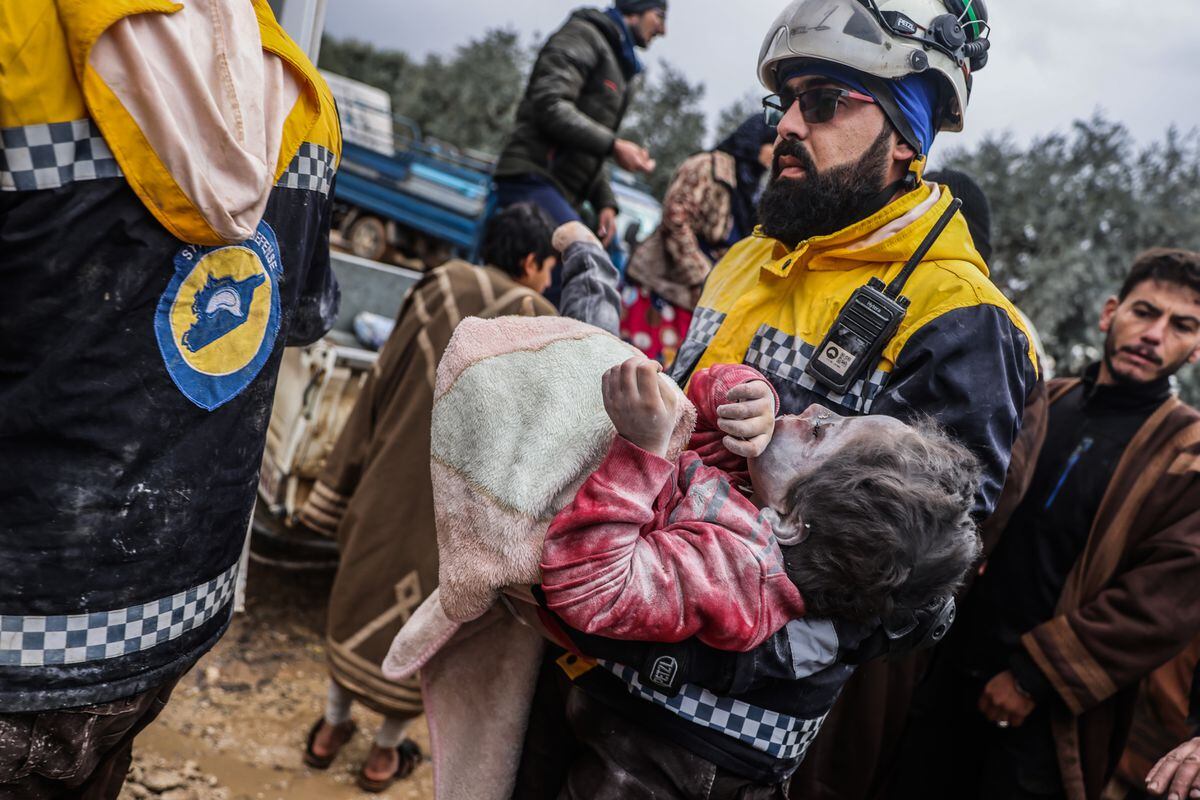Almost 12 years of civil war have left in northwestern Syria, the area of the country most affected by the earthquake on Monday with its epicenter in Turkey, three terrible scenarios for an earthquake: buildings weakened by the bombardments;
weak medical services, with damaged hospitals and a lack of doctors, and an economy in rags.
The natural disaster deepens the drama already generated by weapons, which have left around half a million dead and 6.6 million refugees.
While waiting for the count of victims to continue, the earthquake left a balance of 1,300 deaths: 570 in the areas controlled by the Government of Damascus and more than 700 in the territory in the hands of the forces opposed to the Bashar al-Assad regime. according to information from the White Helmets (the Syrian Civil Defense).
Since 2019, Syria accumulates even more tragedies.
First, its economy was hit by the Lebanese slump, one of the three most serious since the mid-19th century, according to the World Bank.
Then came covid and finally cholera.
More information
Latest earthquake news in Turkey and Syria
“The earthquake will aggravate an already dramatic situation;
with a poverty rate of 80%, very high unemployment;
an inflation that does not stop growing, especially in the products of the daily basket, since part of the wheat came from Russia and Ukraine, and a currency that has already almost lost 80% of its value ”, Ignacio Álvarez-says by telephone. Ossorio, professor of Arab and Islamic Studies at the Complutense University of Madrid and a specialist in the conflict, about which he recently published
Syria: the black decade (2011-2021).
Aerial view of the Syrian city of Besnia, this Monday after the earthquake.
MUHAMMAD HAJ KADOUR (AFP)
Although for different reasons, some images from Monday were already familiar to many Syrians: the desperate search for the missing among the rubble, the corpses in black bags, the damaged water tanks, the scars on the buildings... The Syrian Civil Defense, better known like the White Helmets, has pointed out that the heavy rains and snow, which have caused the closure of some roads, are preventing some of their teams from reaching the places where help is needed.
The earthquake has affected both areas controlled by the Government of El Asad and rebel areas, from the last jihadist stronghold to the forces supported by Ankara, in a deeply internationalized conflict.
Of the 4.6 million people living in northwestern Syria, 90% are in need of humanitarian aid.
There, where 2.9 million are displaced, 1.8 million of them live in one of the 1,400 displacement camps, informal settlements, or simply buildings abandoned by bombardments carried out by forces loyal to Damascus or its ally Russia.
It is a kind of rebel stronghold in which they have ended up concentrated as a result of the thrust of the regular forces since Moscow entered the conflict and changed its course.
Hayat Tahrir Al Sham jihadists control Idlib province.
Although both the government zone and the rebel zone have been affected by the earthquake, the day after looks much darker for the opposition, whose great supporters are Turkey and Qatar.
The neighboring country will predictably be more concerned with healing its own wounds.
In addition, NGOs and international organizations will find it difficult to introduce aid through the only possible place: Bab Al Hawa.
It is the only border crossing through which the United Nations can do so without the need to seek prior approval from Damascus.
The United Nations estimates that about 2.5 million people depend on the aid that it carries through that single umbilical cord.
Also, it has been damaged in the earthquake.
After the disaster, Amnesty International has asked El Asad to allow humanitarian aid to reach all areas of the country "without restrictions".
In January, the United Nations Security Council approved extending its opening by six months.
Russia reluctantly allowed it.
Since 2019, he has criticized the arrangement, considering that the UN should channel the aid through the El Asad government.
There were sighs of relaxation after the vote, as it was particularly sensitive coming in the midst of the war in Ukraine.
Russia had little incentive this time to make a gesture to the West and it was feared that it would use its permanent seat on the Council to veto it.
After the earthquake, the alliance scheme of the Syrian war also seems to be reproducing.
Russia, the United Arab Emirates and Algeria have already announced that they will send humanitarian aid to the Damascus government.
"Although communications are very complicated in the affected area of Turkey, also due to the winter storm, it is much more likely that aid will arrive there than it will to the rebel areas of Idlib, which is suffering from a blockade by the regime, which He is not going to lift it due to this circumstance”, says Álvarez-Ossorio.
Living conditions in Idlib have improved since 2020, when Moscow and Ankara began a de facto
ceasefire
, but there is a risk that the earthquake will generate a new wave of refugees to Turkey, which wants just the opposite: that the 3 return 7 million that it houses.
Syrian refugees there are under increasing pressure to return home, and the fact that Turkey is due to hold elections in June has not helped soften the discourse on them.
Follow all the international information on
and
, or in
our weekly newsletter
.
Subscribe to continue reading
Read without limits
Keep reading
I'm already a subscriber

